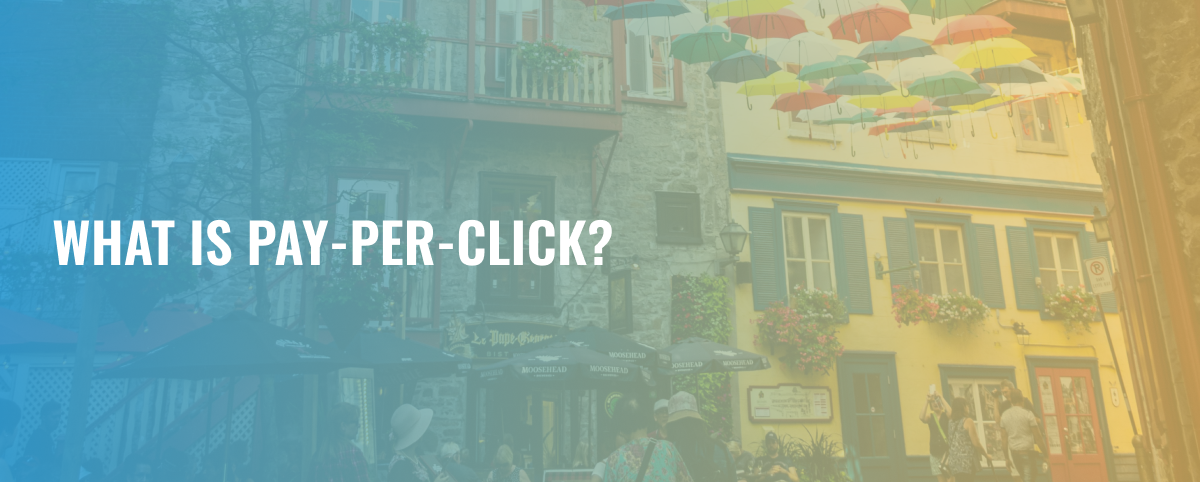8 minute read
What Is PPC? Learn the Basics of Pay-Per-Click
Pay per click (PPC) is an online advertising model used to drive traffic to websites in which advertisers pay for each click on their ad. This advertising method allows businesses to display ads on search engine results pages or third-party websites to attract net new customers to their website.
PPC is a cost-effective way to reach your target audience that can be tailored to specific demographics, locations, and keywords. This is a popular digital marketing method, as it produces immediate results and facilitates the tracking and measuring of ad effectiveness. PPC is a way for businesses to skyrocket their online visibility and attract potential customers to their website.
WHY IS PAY-PER-CLICK IMPORTANT?
-
EFFECTIVE TARGETING
Effective PPC audience targeting allows companies to target specific demographics, geographic locations, and interests, ensuring that their ads reach the right audience. This increases the chances of converting potential customers into loyal buyers.
-
DRIVES FAST RESULTS
Unlike traditional advertising methods, PPC campaigns can deliver results quickly. Once launched, the ads are displayed to your target audience, giving you quick results. This is especially beneficial for companies whose promotions or product launches are time-sensitive.
-
COST-EFFECTIVE
One of the biggest advantages of PPC is its profitability. Unlike traditional advertising, where companies pay a fixed amount regardless of the number of impressions and clicks, PPC only charges when someone clicks on the ad. This makes it a budget-friendly option for businesses that can set a daily or monthly budget for their campaigns.
-
EASY TO MEASURE AND TRACK
With PPC, companies have access to real-time data and analytics that give them insight into the performance of their campaigns. This allows you to easily track conversions, click-through rates, and overall campaign ROI. This data can then be used to make informed decisions and make necessary changes to your campaign to achieve better results.
HOW DOES PPC ADVERTISING WORK?
Pay-per-click (PPC) advertising is a form of digital marketing in which advertisers pay a fee for each click on their ad. This type of advertising allows companies to display ads prominently on search engine results pages or on websites with relevant content. PPC works with specific keywords that are relevant to the company and its target audience. When a user searches for these keywords, they will be shown an ad. Advertisers bid on these keywords and the highest bidder’s ad is displayed. This method allows companies to effectively reach their target audience and pay only for the clicks their ads generate.
TIPS FOR ENHANCING YOUR PAY-PER-CLICK ADS
-
USING RELEVANT KEYWORDS
One of the most important elements of a successful PPC campaign is using relevant keywords. This means choosing keywords that are closely related to your company or target group. By using relevant keywords, you increase the likelihood that your business will appear in search results when potential customers are looking for products or services like yours.
-
QUALITY OF YOUR ADS AND LANDING PAGES
The quality of your ads and landing pages is also crucial to improving your PPC strategies. Eye-catching ad copy that accurately reflects the products or services being offered is extremely important. Additionally, landing pages should be well-designed, easy to use, and relevant to your ad. This not only improves the user experience, but also increases the chance of conversion.
-
SOLID ACCOUNT STRUCTURE
A solid account structure is another important factor in improving the quality of PPC advertising. It’s about organizing campaigns and ad groups logically and strategically. A well-organized account makes it easier to manage and optimize your campaigns, resulting in better performance and higher ROI.
BEST PAY-PER-CLICK PLATFORMS
-
GOOGLE ADS
Google Ads is the most widely used pay-per-click platform, with over 3.5 billion searches per day. It allows companies to bid on keywords and place ads of various sizes on Google search results pages and Google Display Network sites. Google Ads’ enormous reach and targeting capabilities make it a great option for businesses of all sizes and industries.
-
META ADS
Meta Ads, also known as Bing Ads, is Microsoft’s pay-per-click advertising platform. It works similarly to Google Ads, allowing businesses to bid on keywords and display ads on Microsoft Search, Bing, and partner sites. Although it has a smaller market share compared to Google, Meta advertising can still be an effective platform for reaching different audiences.
-
TIKTOK ADS
TikTok Ads is a relatively new pay-per-click platform that has become extremely popular in recent years. It allows companies to create short video ads that appear in a user’s TikTok feed, just like well-known TikTok content. This platform is ideal for brands that want to reach younger audiences and take advantage of the platform’s rapid growth and engagement.
-
MICROSOFT ADS
Microsoft Ads is another pay-per-click platform that allows companies to target users with ads on Microsoft Search and partner sites. It offers several targeting options, including age, gender, location, and device type, making it a useful tool for businesses looking to reach a specific audience.
-
LINKEDIN ADS
LinkedIn Ads is a pay-per-click platform designed for B2B marketing. This enables companies to reach professionals, decision-makers, and job seekers, making it an excellent option for professional services firms. It offers a variety of ad formats and targeting options, making it a valuable platform for companies looking to connect with professionals and generate leads through PPC campaigns.
TYPES OF PPC ADS
-
SEARCH ADS
Search ads are the most common type of PPC ads that appear on search engine results pages. Advertisers bid on specific keywords related to their products or services, and their ad appears when a user searches for those keywords. These ads are highly targeted and the advertiser only pays when the user clicks on the ad.
-
DISPLAY ADS
Display ads are visual ads that appear on websites and mobile apps. They may contain images, videos, and audio and are intended to attract the viewer’s attention. Display ads are a great way to increase brand awareness and reach a wider audience.
-
VIDEO ADS
Video ads are gaining popularity in the PPC advertising world. With the rise of video streaming platforms, advertisers can now target video ads to their audiences on YouTube and other video platforms. These ads can also be skipped, depending on the viewer’s preference. They are an excellent way to visually distinguish a product or service.
FAQs
-
WHAT ARE THE BENEFITS OF PPC ADVERTISING?
PPC advertising is beneficial for various reasons. Its effective targeting capabilities allow businesses to tailor their ads towards their ideal customer to drive sales. In addition, this method delivers quick results, which is especially beneficial for companies launching time-sensitive campaigns. Its profitability and measurability are both optimal for eCommerce businesses.
-
WHAT IS A KEYWORD IN PPC?
Keywords are search terms that advertisers bid on in PPC ads. These are words or phrases that users type into search engines or social media platforms when looking for a product or service. Including relevant and targeted keywords in your advertising campaigns increases the chance that your ad will be displayed to the right target group.
-
HOW DO YOU DETERMINE THE COST OF A CLICK IN PPC?
The cost of a click on a PPC ad is determined by bidding. Advertisers bid on keywords, and the winning bid determines the cost per click. However, other factors such as ad quality and relevance also play a role in determining your cost per click.
-
WHAT IS A QUALITY SCORE IN PPC?
Quality Score is a measure used by search engines to determine the relevance and quality of an ad. It takes into account your ad’s click-through rate, ad relevance, and landing page experience. A high Quality Score can result in lower costs and a higher ad position.
-
WHAT IS A LANDING PAGE IN PPC?
A PPC landing page is a standalone website designed specifically for a PPC campaign. This is where users are redirected when they click on a PPC ad. The purpose of a landing page is to provide relevant and compelling information to the user and ultimately convert them into a customer. Landing pages are tailored to each ad and designed to optimize conversions. This makes them an important element of a successful PPC campaign.

